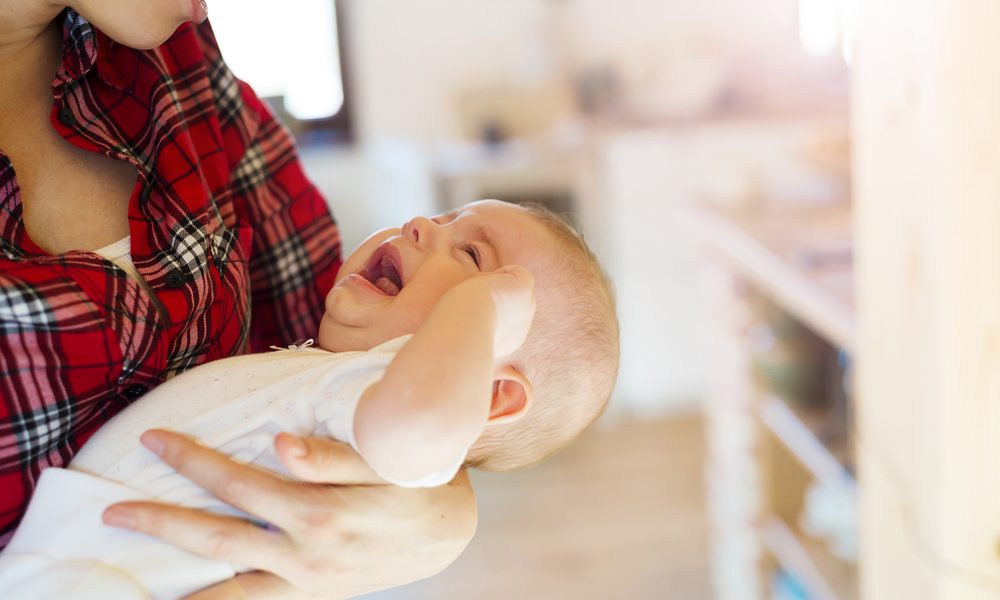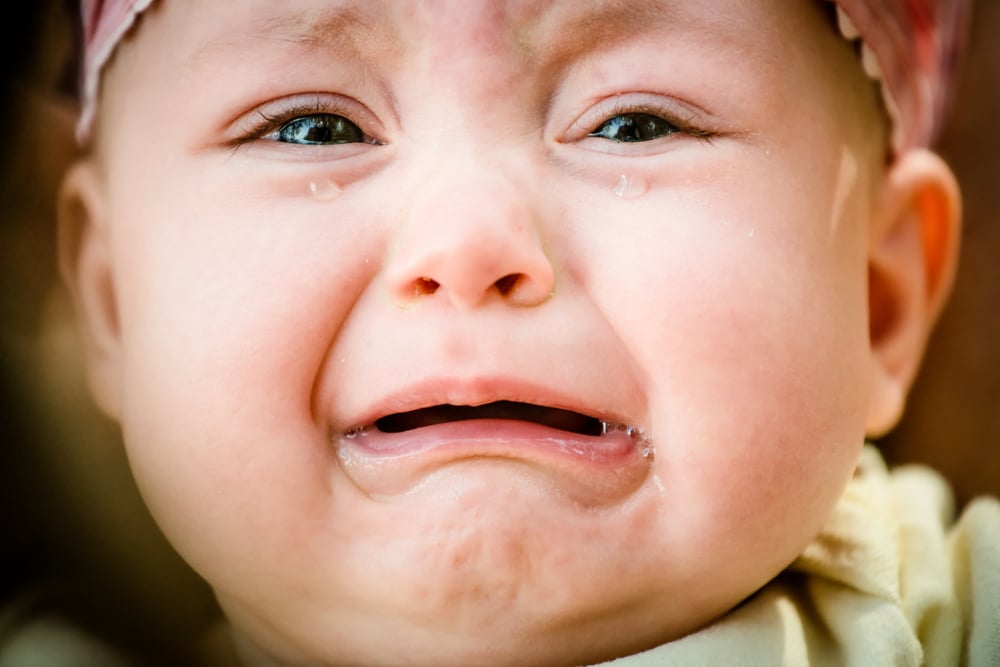
Are Crying Babies Financial Burdens?

Newly born babies are bundles of joy. As such, parents are willing to put up with all the hardships for the new entrant into their homes. Parents are aware that babies can bring in extra expenditure as they need to purchase numerous items. The London School of Economics has now shown that crying babies can be financial burdens on the parents.
The institution has pointed out that parents will be subject to sleep deprivation. The study claims that this reason is responsible for lower bank balances among crying babies’ parents.
According to the statistical data provided by LSE, sleep deprivation for just one hour every night can reduce household income by 11%. Incomes can dip further when sleep deprivation increases during the nights. The associate professor of political economy at the LSE advises parents to factor in the costs of lower earnings when they decide to have children.
Effect on Families

postolit/Depositphotos
The research will undoubtedly look like a joke for countless people who could be trying to have babies. It is a well-known fact that newborns have no method of expressing their desires other than through crying. It is also their way of telling everyone around they could be feeling hungry, bored, or facing problems of any kind.
The study presented by the London School of Economics is likely to develop a sense of confusion among youngsters who would be planning a family. If a single crying baby can reduce household income by 11%, how much can you lose if you decide to have a couple of children within a duration of two to five years? This could easily be a deterrent if you are planning to start a family.
Effect on productivity
Undoubtedly, the study conducted by the LSE cannot be questioned it takes into account the fact that children can reduce the productivity of the parents. There have been numerous incidents where parents of newborns have had difficulties holding on to a job or working the entire day. The economic models that are presently in use do not account for sleep deprivation as responsible for human fatigue. It also has an effect on the health of the individual, resulting in low productivity.
Should the Parents be compensated?

martinan/Depositphotos
The study mentioned the effects of crying babies on their parents’ health and their productivity. Therefore, it recommended that the government should factor in these reasons and therefore, compensate the parents for having babies. Is the LSE suggesting that the taxpayer’s money should be spent on couples who have decided to have babies?
The answers to this question will undoubtedly be sarcastic from most who could be struggling with a number of financial issues by themselves. Providing compensation for such parents would be the last thing on their minds. They would perhaps be concentrating on paying off mortgages and trying to have better lives for themselves.
“A baby is God’s opinion that life should go on.” —Carl Sandburg
Conclusion
It is strange that the London School of Economics decided to conduct such a study. Yet, there is ready information that the lack of productivity due to sleeplessness is costing the United Kingdom £1 billion annually. According to the Sleep Health Foundation, about 33% of adults within the UK make mistakes at work due to fatigue. The study conducted by the LSE may have a degree of credibility considering the plight of the parents of newly-born crying babies. However, a major portion of the population will not take kindly the suggestion such parents be compensated for their losses.
More in Business Lounge
-
`
Camilla Bowles & Prince Charles Ask People to Remember The Elderly This Holiday Season
Every year as the holiday season begins, we rush to the shopping centers and wait in long queues just to grab...
December 27, 2021 -
`
Baby Mama Olivia Munn Welcomes First Child With John Mulaney
You might think that this is wholesome news and there is nothing problematic about it – but guess again! As it...
December 23, 2021 -
`
Being A Feminist – The Dad Version
Feminism – an ideology that works to establish social, personal, economic, and political equality of humankind. In this day and age,...
December 22, 2021 -
`
Starting a Business Can Be Overwhelming–Here’s How You Can Get Over Your Fears & Start Building Your Company
Successfully building a business from the ground up, is not an achievement that all people can claim to have done. It...
December 22, 2021 -
`
Too Busy Working as a Corporate Executive to Manage Your Finances? These Are The Simple Steps You Can Take Today
Corporate executives often find themselves in an interesting predicament. After they’ve managed to put in the work to nab the high-paying...
December 21, 2021 -
`
Leonardo DiCaprio Buys a $9.9 Million Beverly Hills Mansion
Leonardo DiCaprio is no stranger in the world of Hollywood – and if you don’t know him, what have you been...
December 17, 2021 -
`
Kevin Hart Drops $7 Million on The Property Next to His Calabasas Mansion
People often say that kindness is making someone laugh, even if it’s only for a moment. Well, going by that logic,...
December 8, 2021 -
`
Two Decades Worth Of Jennifer Aniston’s Real Estate Grabs – Take A Look!
Jennifer Aniston! Who doesn’t know and love the superstar who breathed life into iconic characters like Rachel Green, Rosie Dickinson, Rose...
December 7, 2021 -
`
Let’s Hear it For The Long-Awaited Film, House of Gucci
Have you watched the House of Gucci yet? The movie has got to be one of the most anticipated ones of 2021 –...
December 1, 2021















You must be logged in to post a comment Login